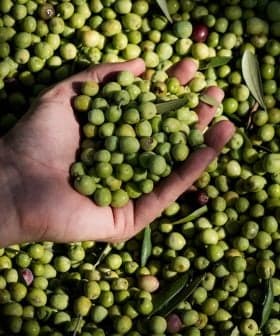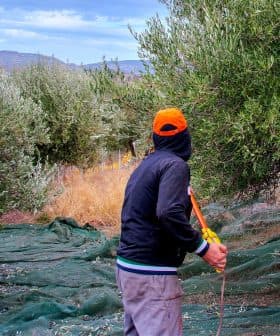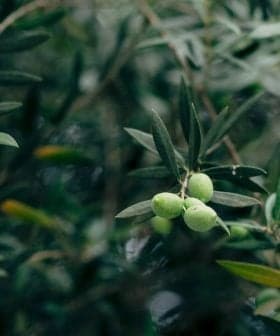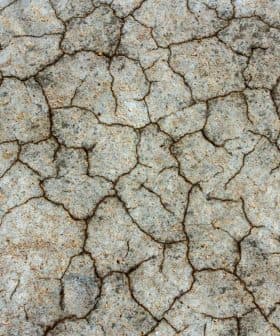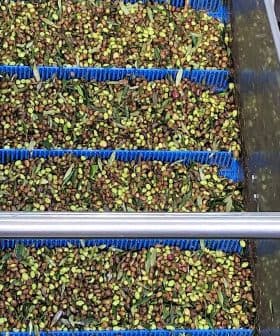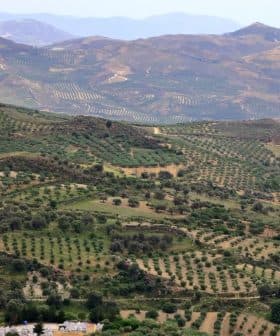Book Lays Out Best Practices for Olive Oil Production in Greece
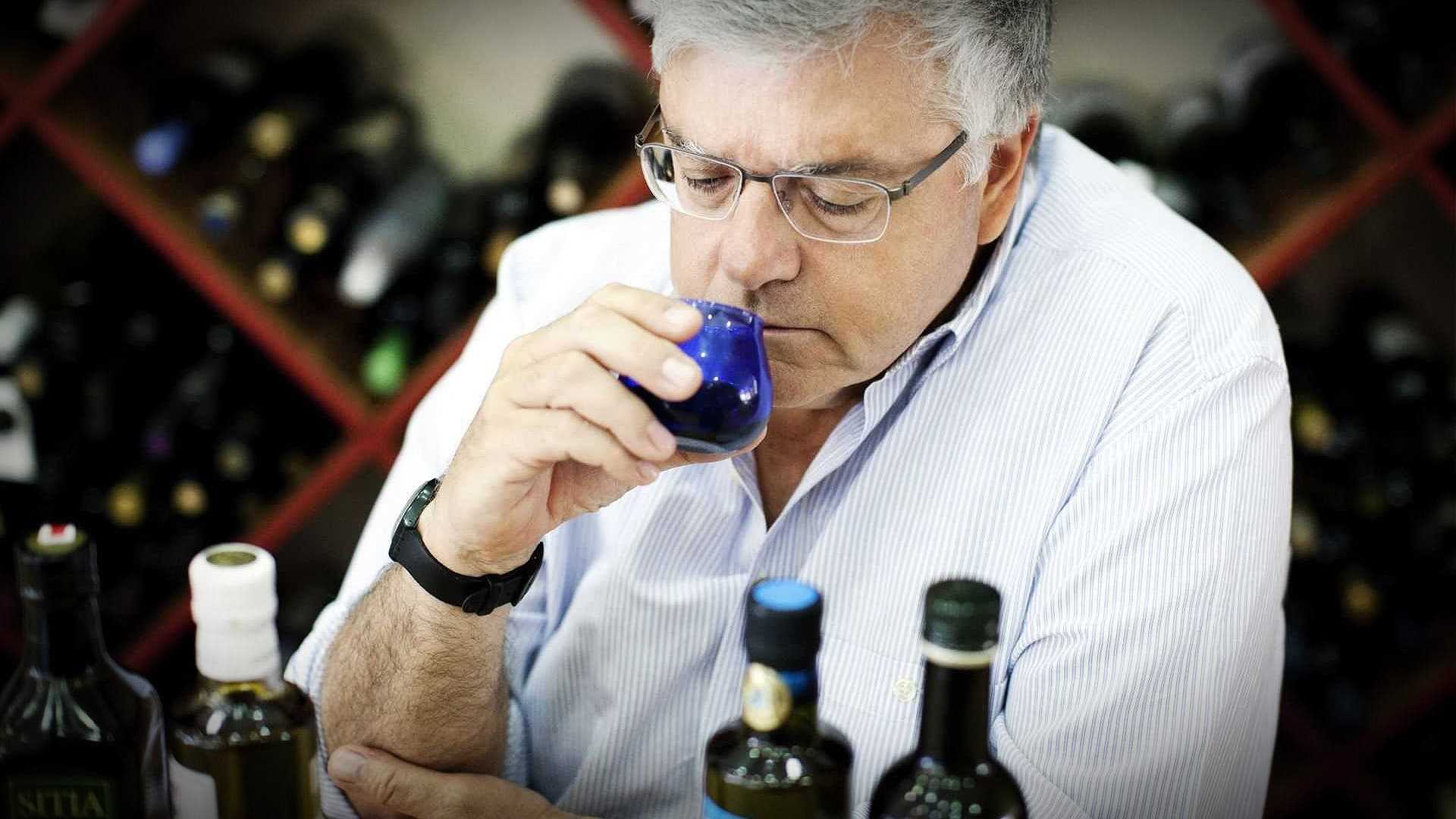
Vasilios Frantzolas’s new book, Modern Olive Oil Growing Techniques and Quality Olive Oil Production, provides a comprehensive guide to achieving quality in olive oil production from the field to the bottle, drawing on his decades of experience and research in the industry. The book covers a wide range of topics, from soil management and fertilization to olive harvesting, milling, and processing, offering practical advice for growers, producers, and millers to optimize their practices and enhance the quality of their olive oils.
In the publishing annals of the Greek olive oil sector, Vasilios Frantzolas’s new book is probably the first to thoroughly present the complete steps to achieve quality in olive oil production from the field to bottle.
Modern Olive Oil Growing Techniques and Quality Olive Oil Production is Frantzolas’s third book in the field of olive oil making, filled with useful information for olive tree growers, producers, millers and bottlers.
We need to apply new practices in order to become more rational at fertilizing, watering and pruning the olive trees, and to optimize the processing of olives.
“In this book, I present the most recent knowledge and the most modern techniques of harvesting and processing olives, based on my research and work as a tutor in seminars for over 18 years,” Frantzolas told Olive Oil Times.
See Also:Best Olive Oils From GreeceAn expert olive oil taster and quality consultant, Frantzolas inherited his love for olive and olive oil along with the family olive groves in the Peloponnese.
His father and mentor, Tasos, introduced him to the world of quality olive oil, being the first in Greece to package extra virgin olive oil in plastic bottles back in 1969.
“My father was a resourceful man,” Frantzolas said. “He had patented a system he had devised for safely filling and capping the bottles of olive oil. I remember myself as a kid filling up bottles in our basement and then running to the market to sell them.”
A career shift from civil engineering was imminent for Frantzolas, who soon decided to turn his passion into a profession; he expanded his studies to food policy and indulged himself in exploring the ins and outs of making olive oil.
Over the years, through learning, experimenting and working together with other industry professionals, Frantzolas has accumulated a large amount of knowledge covering the full spectrum of olive oil production. He then started to convey his mastery of crafting quality olive oil to olive growers and producers by organizing and teaching seminars.
At the same time, he has managed to stay close to the most recent developments in the field by setting up collaboration channels with university professors across Europe and keeping track of academic papers and other publications in the field of olive oil.
“A large part of the information included in the book is the result of my educational trips abroad to various universities, like those of Pisa and Perugia in Italy and the Institute for Food and Agricultural Research and Technology in Catalonia,” Frantzolas said.
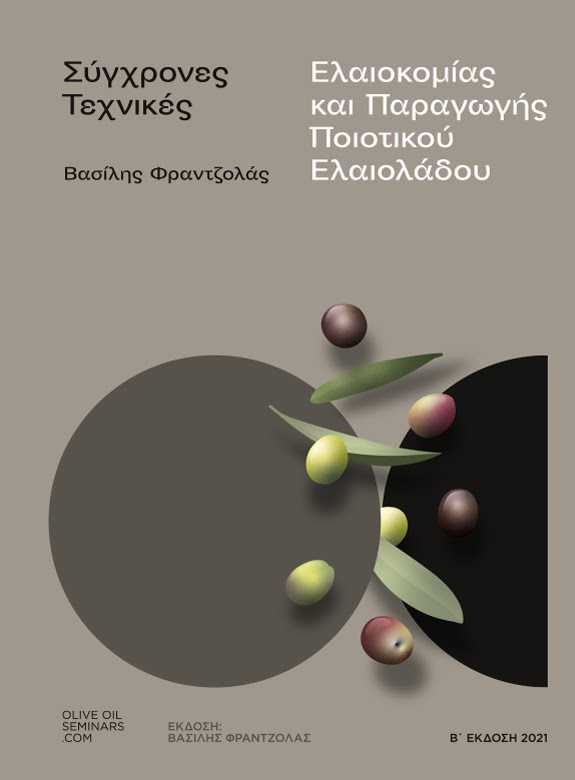
His latest piece of writing also contains details rarely found in the relevant literature in Greece, such as defining the correct time in the season for picking olives, explaining olive oil filtering, and describing the available solutions for storing olive oil after milling.
“I also wanted to provide practical advice to growers, producers and millers on various important matters, like the advantages and disadvantages of watering the olive trees or how to treat emulsions during olives processing,” the author said.
The book starts in the olive grove, highlighting the importance of the organic matter contained in the soil to the productivity of the olive trees.
Frantzolas also suggests that the soil benefits from avoiding frequent harrowing and by letting nature take over to allow other small plants and grass to grow. This way, erosion is avoided and the rainwater better penetrates and remains in the soil.
An important aspect of modern olive tree growing is fertilization. While fertilizers significantly contribute to the increased productivity of the olive trees, it is essential to use them in moderation and after examining the nutritional requirements of the trees.
“A situation encountered in many olive groves is over-fertilization using nitrogenous fertilizers,” Frantzolas said. “This practice can lead to reduced fruition of the trees and also have a negative impact on the phenols contained in the produced olive oil.”
Frantzolas also maintains in his book that when non-irrigated olive groves are converted to irrigated, the gain for producers is significant with an increase between 60 percent and 300 percent in the quantity of the olive oil produced.
He also points out that a largely unknown benefit of moderate irrigation is the improvement of the olive oil’s sensory profile.
“Irrigation favors the blossoming of the olive trees and increases the number of drupes and the quantity of the oil they contain,” he said. “But maybe the least known advantage of irrigation is that it increases the aromas of the olive oil.”
“However, improvident use of irrigation water will ultimately reduce the bitterness and pungency of the oil since it lowers the quantity of phenolic compounds,” he added. “This must be carefully considered with relatively low-phenolic varieties like Arbequina.”
Besides laying out the proper methods of olive growing, harvesting and milling, the author went the extra mile to clear up false perceptions that are still prevalent throughout the sector in Greece.
In his book, he strongly criticizes the characteristic Greek phenomenon of pruning the olive trees during harvest, which ultimately leads to a substantial loss of the producers’ income.
“It is a false practice followed by producers in many territories of Greece,” Frantzolas said. “Pruning is applied amid harvest to pick the olives from the cutoff branches and reduce the workload. However, no real rules of properly treating the trees apply in this case and consequently, the trees lose a crucial part of their body and foliage and fail to produce enough olive fruits the next season.”
He also advises that, with most olive varieties, the best time to pick the olive fruits is when their color has become yellow to green rather than purple to black. At that stage, no more oil concentrates in the drupes and the olives are more exposed to the fruit fly and other pathogens if left unpicked.
A large part of the book is devoted to the milling of olives, describing all the modern-day equipment used and the methods applicable to the extraction of olive oil.
The information is presented in a linear manner and in accordance with the different stages of olives processing in every modern olive oil mill, beginning with the leaf removal and the washing of the olives and ending with the filtering of the olive oil which takes place at the end of the extraction process.
“Master millers will find every answer they seek about olive processing in this chapter, being able to increase the quantity and most importantly the sought-after quality that makes the difference in today’s olive oil world,” Frantzolas said.
In advance, the author presents new developments in the extraction process of olive oil, such as the rapid warming and cooling treatment of the olive paste before entering the kneading trough, which reduces the required time for malaxation and improves the organoleptic characteristics of the olive oil.
Frantzolas explained that the technique could prove useful in areas where higher than usual temperatures are expected to be the norm in the coming years due to climate change, including Crete and the southern Peloponnese.
The olive drupes are already at a high temperature at the time of harvest as a result of warm weather, so the rapid cooling of the olive paste before malaxation counteracts the abnormal increase of the drupes’ temperature leading to an olive oil of higher quality.
No matter the developments and solutions the advancement of technology offers, the author insists that progress in the sector cannot be obtained without proper training and in-depth familiarity with the requirements of olive oil making.
“The book is devoted to the olive growers, producers and millers of Greece, with the expectation to be read and the knowledge to be disseminated,” Frantzolas wrote in the book’s preface.
“We need to apply new practices in order to become more rational at fertilizing, watering and pruning the olive trees, and to optimize the processing of olives,” he added. Only by improving our knowledge and our methods in all the stages of olive oil production, we will be able to increase the output capacity of our olive groves and also elevate the quality of our olive oils.”



